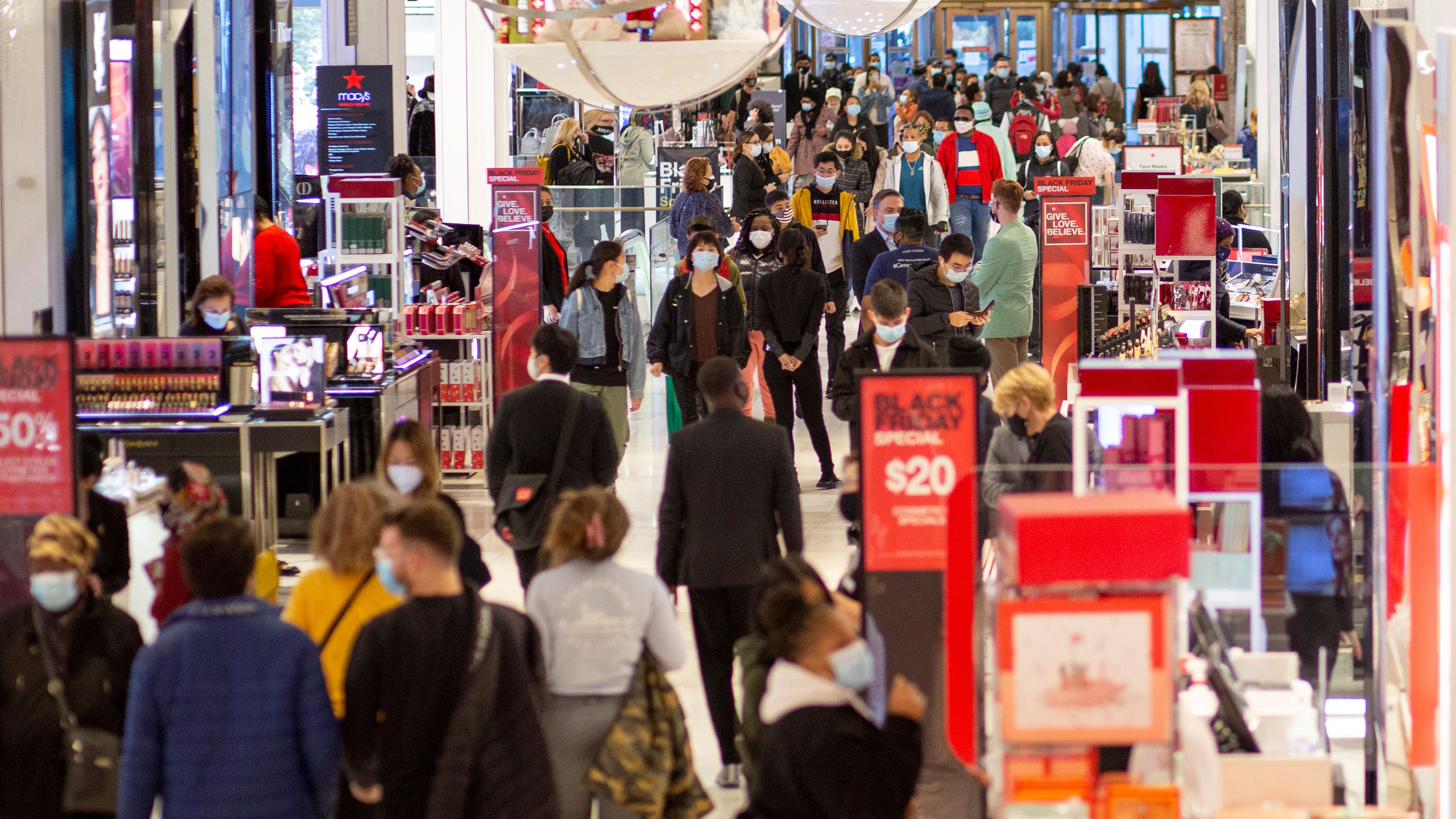
Now that Americans are shopping in person again, it seems we’re seeing a lot of videos on social media showing customers lashing out at workers and insulting them over wearing masks or slow service. And it’s not just anecdotal. Airlines, for example, have reported more unruly passengers in the last year than in any full year since the Federal Aviation Administration began collecting data in 1995.
“Marketplace” host Reema Khrais spoke to Atlantic writer Amanda Mull about her recent article, “American Shoppers Are a Nightmare.” While the ultra-tense political climate in the United States and the traumas of the pandemic have created more animosity between service workers and customers, it didn’t start there. Mull argues that department store culture, dating back to the 19th century, had a part in training consumers to behave badly. The following is an edited transcript of their conversation.
Reema Khrais: So your argument is that yes, things may be worse now, but consumers being difficult — for lack of a better word — is nothing new. And that in fact, we were conditioned to be this way. What do you mean by that?
The culture of shopping
Amanda Mull: Well, consumerism as an idea is only about 150 years old. And it was created sort of as an outgrowth of industrialization, and specifically the second industrial revolution, that really ramped up the ability of corporations to produce products — everything from food to home furnishings — at a really large scale, really efficiently. Before that, most people grew a lot of their own food, they made things in their homes, they sewed their own clothes. But the sort of scaled-up production abilities created a need for scaled-up sales abilities, which is where you get the sort of culture of shopping that we have now.
Khrais: I mean, that makes sense. And you wrote that back in the 19th century, people were not a big fan of corporate power, and that department stores had to essentially convince people that shopping benefits the community. How did they do that? How did retailers win people over?
Mull: Corporate power was just not popular among people who weren’t a part of the ownership class. This is also an outgrowth of industrialization. And so what department store owners had to do was convince people that actually they, and not the working class, were the people who had their eye out for the interests of regular people. And they did that in a lot of really creative, really expensive ways. Department stores, they didn’t just have shopping, they also had post offices and medical facilities and restaurants and cultural events. So they just lavished this growing group of middle-income people with all kinds of perks.
Khrais: Yeah, yeah, it sounds like they were treating them more like guests than customers. And I guess when you have a guest, like, what do you do? You make them feel good, you pamper them, make them feel happy.
When customers became “guests”
Mull: Yes, this is the era in which calling customers “guests” became sort of normal, became a thing that people did, and businesses still do that all the time. I think a lot of retailers especially refer to their customers as their guests.
Khrais: In building their businesses this way, you argue that department stores were, in essence, building something much larger, and that is class consciousness. Can you talk about that?
Mull: Yes. During the Gilded Age, as an outgrowth of industrialization, the sort of working class split into two. One of these groups was the production labor or people who worked in factories, who were trying to go on strike trying to fight for their labor rights. So you get those people and then you get this sort of like office-worker class. And what department stores did essentially was convince this new growing middle-class, office-worker demographic that they were more like rich people than they were like industrial workers.
Khrais: They made them feel special.
Mull: They did. Yes, they made them feel special. They made them feel served. They did that through these stores. They provided access to servants, basically. If you were a department store customer, you could sort of like rent a servant for a while, while you were choosing a new scarf or perfume. You could have that access to that feeling of being wealthy and upper class and respected and served.
Workers’ emotional labor
Khrais: So I want to end by bringing this back to the service workers. You argue that for them, this dynamic is incredibly taxing and that they’re doing a lot of emotional labor. Emotional labor is a phrase we hear a lot now. But what do you mean by it in this context?
Mull: Yes, it specifically is designed to talk about people who are at their paid jobs and required to stifle their own emotional reactions to how they’re being treated in order to, in the case of most customer service workers, sort of appease and soothe them. And it’s a real skill. I have worked in customer service. I’ve worked at big-box stores. Being able to sort of keep yourself under control, in a situation in which people are just losing control at you is really, really psychologically difficult.
"difficult" - Google News
August 14, 2021 at 07:18AM
https://ift.tt/3yNZJ8r
Did department stores train people to be difficult customers? - Marketplace
"difficult" - Google News
https://ift.tt/2VWzYBO
https://ift.tt/3d5eskc
Bagikan Berita Ini














0 Response to "Did department stores train people to be difficult customers? - Marketplace"
Post a Comment